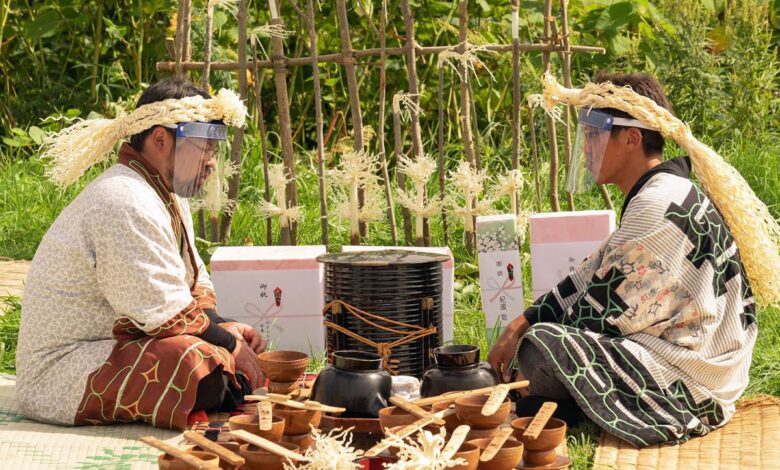
Members of the Raporo Ainu Nation observe asir cep nomi, an Ainu ceremony that marks the fish’s annual migration back to the island’s major rivers and tributaries. Photo Credit: Centre for Environmental and Minority Policy Studies
Society JapanIndigenous People Across the Pacific Hold Hands to Fight for Their Fishing Right
With the collaboration of America’s First Nations, Japan’s Raporo Ainu Nation has reclaimed its historical rights to fish salmon, extinguished some 140 years ago.
“There’s no doubt,” says Masaki Sashima, head of the Raporo Ainu Nation, “that the Boldt Decision [adopted in 1974 to grant Pacific Northwest Nations their fishing and hunting rights through various treaties] has vastly improved the lives of the Pacific Northwest’s Salmon People.”
In the 18th century, Japan’s colonization of Hokkaido provoked a seismic shift to the Ainu way of life. Consequently, numerous members of the Raporo Ainu Nation decided to hide their identity, dispersing in the society. Three years ago, the Raporo Ainu Nation adopted its name, embracing the Native reference of its geographic roots, then filed a lawsuit against the prefecture to assert their right to fish salmon along the Tōkachi River. Today, Makah and Lower Elwah Klallam Tribes can freely exercise their right to catch salmon, a right inherent to all Native Salmon Peoples, through an exceptional act: every fall, each group is allowed to catch up to 200 salmon in observance of asir cep nomi, an Ainu ceremony that marks the fish’s annual migration back to the island’s major rivers and tributaries. “Salmon is central not just to our cuisine,” says Teruyo Usa, owner of Harukor, Tokyo’s only Ainu restaurant, “but to our identity.” For the Raporo Ainu Nation, salmon is king.



